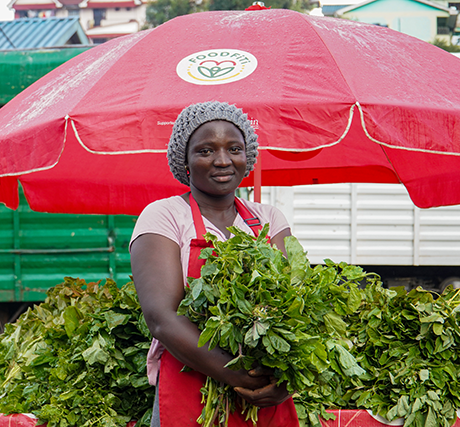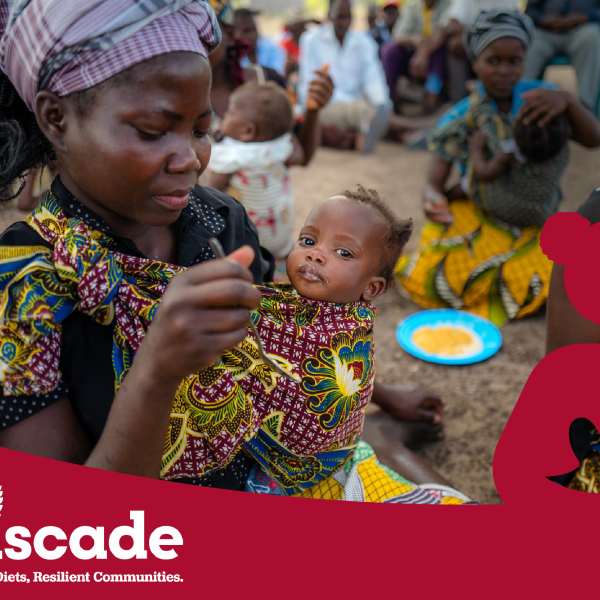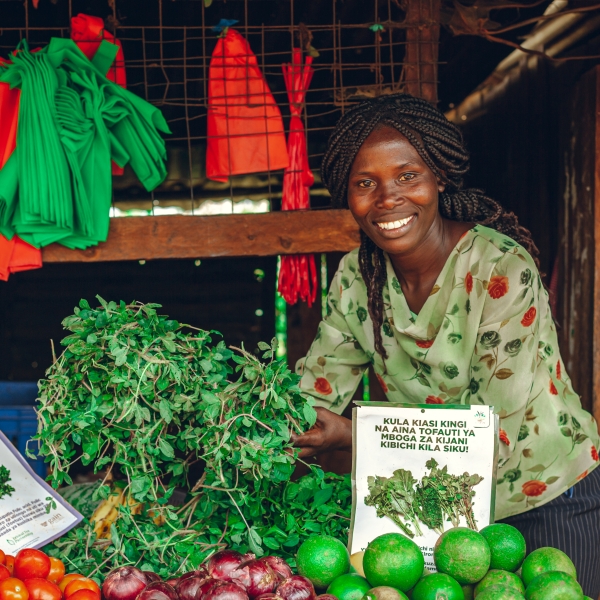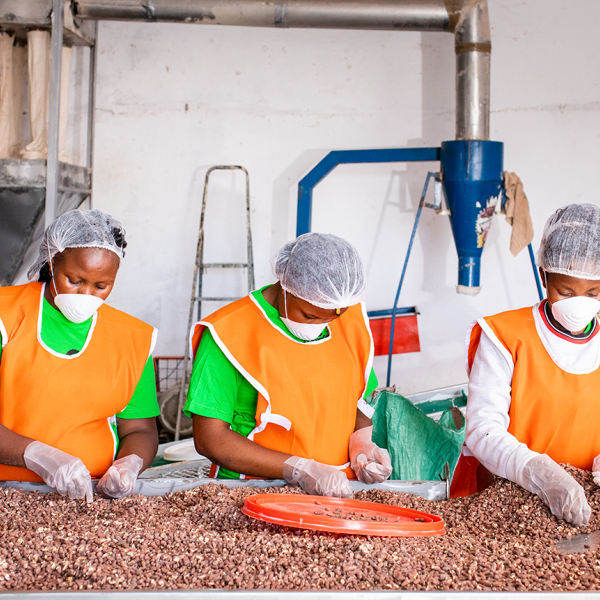Healthier diets.
FOR KENYA
GAIN’s mission is to advance nutrition outcomes by improving the consumption of nutritious and safe food.
GAIN’s mission is to advance nutrition outcomes by improving the consumption of nutritious and safe food.
From fast food to fresh: How to shift Kenya's eating habits to nutritious, farm-to-fork foods
GAIN has been contributing to improving the nutritional status of Kenyans since 2010, with an initial focus on supporting the Government of Kenya to introduce the fortification of maize flour, wheat flour, and edible oils. Since then, we have diversified our programmatic work to integrate various efforts into a food system approach that links access and demand for nutritious safe food.
These efforts have culminated in increased policy influence in about 15 out of the 47 Counties in Kenya, development of the Food Fortification Strategic Plan 2018-2022 and the establishment of Food Safety Coordination Committee in Counties. Over 100 SMEs have received tailored technical assistance, innovation accelerator capital or emergency funding to promote supply of healthy and safe foods. In addition, GAIN Kenya supported about 200,000 farmers to grow nutrient-enriched beans to enhance their availability. Also, GAIN has supported the development of a prototype Food System Dashboard which is housed in the Ministry of Agriculture and Livestock Development. Moreover, GAIN partnered with Kenya Tea Development Agency and partners to support about 100,000 smallholder farmers, workers and their families within the tea zones in Kericho County to access safe and nutritious diets.

The Cost of Hunger in Africa (COHA) Kenya Study (2019) estimated a loss of Kenya Shillings 373.9 billion (USD 3.1 billion) equivalent to 6.9 percent of the Gross Domestic Product (GDP) in 2014 due to child undernutrition. Childhood malnutrition results in reduced productivity, high costs of health-related treatment of malnutrition, and high education costs due to class repetition and absenteeism.
1 UNDERNUTRITION
Children bear the brunt of malnutrition, which negatively impacts their future productivity.
18%
Stunting
Low height for age.
5%
Wasting
Too thin for their height
5%
Underweight
Low weight for their age
2 MICRONUTRIENT DEFICIENCIES
Zinc, vitamin A, iron, and iodine are the most prevalent micronutrient deficiencies.
70%
National zinc deficiency prevalence. 81.6% of preschool children under 5 years and 67.9% of pregnant women
41.6%
of women of reproductive age, aged 15 to 49 years have anaemia, and 69% of children suffer from iron deficiency
22%
children (6 -23 months) consume a minimum acceptable diet
3 OVERNUTRITION
Overweight and obesity and associated diet-related non- communicable diseases..
![]()
NON-COMMUNICABLE DISEASES related to diet continue to rise.
1 in 4 adults is overweight and/or obese
Only 5.2% of Kenyan adults consume the recommended five servings of fruit and vegetables per day
GAIN’s Strategy aims to transform food systems to make healthier diets from sustainable food systems accessible to all people and especially those whose are most vulnerable to shocks. By 2027, we aim to improve the access of 1.5 billion people to nutritionally enhanced staple foods, improve the access of 25 million people to healthier diets, and support positive food system change in 10 countries.
Kenya is one of the countries impacted by malnutrition.GAIN has been improving nutrition in Kenya since 2010, initially supporting the Government of Kenya in fortifying staple foods. Over time, GAIN has expanded its approach to strengthen food systems by enhancing access to and demand for nutritious, safe food. Through partnerships with governments, businesses, and civil society, GAIN works to sustainably improve food availability and consumption, especially for vulnerable populations. By supporting national and county governments with expertise in nutrition and policy development, GAIN plays a key role in shaping food systems governance and driving transformation.
GAIN’s strategy aims to transform food systems, making healthier diets accessible to all, especially the vulnerable.
Some of the key milestones in Kenya include:
![]() 1.5 Billion people with access to nutritionally enhanced staple foods.
1.5 Billion people with access to nutritionally enhanced staple foods.
![]() 7Million Kenyans with access to healthier diets.
7Million Kenyans with access to healthier diets.
![]() Positive food system changes in 10/47 Counties.
Positive food system changes in 10/47 Counties.


A Dutch-funded project whose goal is to improve food security and contribute to the reduction of malnutrition of at least 5 million women of reproductive age and children under five in Benin, Nigeria, Uganda, Kenya, Ethiopia, and Mozambique.

Vegetables for All is a Dutch Government-funded five-year project that aims to improve dietary diversity for 1.1 million urban and peri-urban Bottom of the Pyramid (BoP) consumers by increasing consumption of vegetables in alignment with global guidelines

Scaling Up Nutrition Business Network (SBN) is the world’s leading private sector focused nutrition initiative. SBN is one of the six Scaling Up Nutrition (SUN) networks (Government Network, UN Network, Academia and Research Network, Civil Society, and Donor Network).
Join us as we mark us mark International Women's Day celebrating the achievements of women around the world. We speak to some incredible female leaders around the world striving to #EmbraceEquity.
In this podcast series powered by the Global Alliance for Improved Nutrition or GAIN, we will encounter a myriad of intersecting issues, themes, and solutions. We will hear from regular folks like farmers and mothers around the world trying to put nutritious food on the table for their families. We will also talk with food systems leaders, social entrepreneurs, thought leaders, and people like you.
At GAIN Kenya, we’re dedicated to improving nutrition and food systems to ensure that every Kenyan has access to safe, nutritious food. Explore our work and join us in creating healthier diets for all.
Nairobi, Kenya
3rd Floor, 197 Lenana Place, Lenana Road
Box office: P.O. Box 13733 – 00800
Telephone +254 773 572 103

Country Director, Kenya